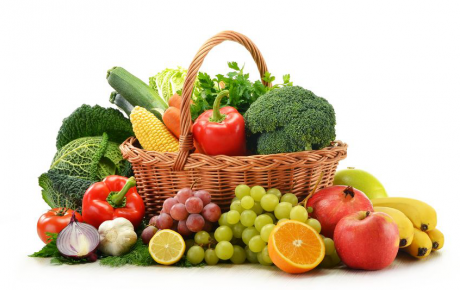Eat right to play to the best of your abilities!
Nature has programmed the food in such a way so that it consists of a group of nutrients. The group involves carbohydrates, proteins, fats, minerals, fibre and water. Nutrients are like players on the field – every one of them has their own task. Properly combined and implemented at a right time can create a master team.
Fuel! Fats and carbohydrates
Fats are a source of energy for young sportsmen. They are used as fuel (more than carbohydrates). When growing up, the amount of their consumption becomes smaller for the benefit of carbohydrates. Moreover, they are responsible for absorbing vitamins such as A, D, E and K which dissolve in them. They are a building material and some of them accelerate regeneration. Sources of fats are: butter, olive oil, rape oil, cod-liver oil, nuts and seeds, peanut butter, avocado. You should provide them in an amount of 25-30% of your daily intake.
Other source of energy are carbohydrates. They accumulate in muscles and liver as a glycogen. Children have a relatively small amount of it but this increases with age. Try to provide carbohydrates in an amount of 45-65% of your daily intake as it is more than half type of products you consume every day. You can find carbohydrates in among others white and full-grain bread, rice, oats, tortilla.
Proteins:
Proteins help in reconstructing cells and regenerate. Protein demand depends on the type of training you do. It should range from 10 to 30%. Sources of proteins are: eggs, fish, chicken breast, pulses, dairy produce, nuts. Try to eat 3-4 meals including above mentioned nutrients to ensure such amount. Vitamins help to maintain many functions in the organism. They influence immune and skeletal system. You can find it in almost every group of nutrients. Some examples of products rich in vitamins: spinach, kale, potatoes, strawberries, oranges, fish.
Minerals similar to vitamins have a wide use in our organism. Calcium and phosphorus have influence over skeletal system, magnesium and potasium prevent muscle cramps, sodium and chlorine help absorbing water.
Some examples of products rich in minerals; Calcium: broccoli, kale, nuts and almonds, diary produce. Magnesium: nuts, legumes, cacao, pumpkin seeds, spinach, potatoes, bananas. Potassium: bananas, tomatoes, apricots, dried tomatoes, potatoes, avocado.
The rest of the nutrients will be discussed in the next articles.
If you have any questions, write to me: erwina.szymczyk@soccerskills.pro











